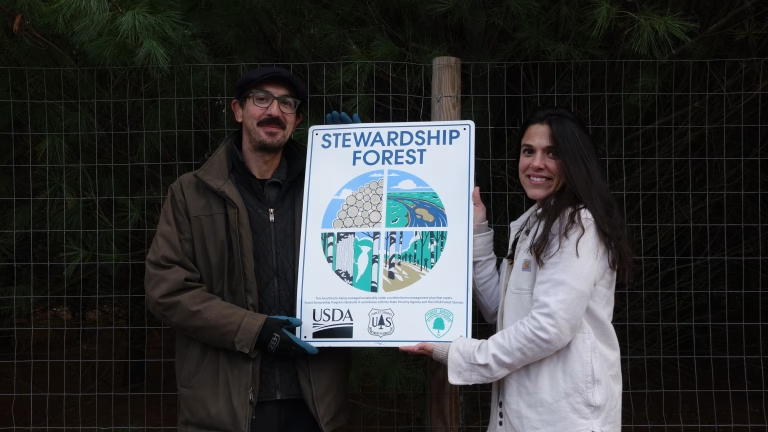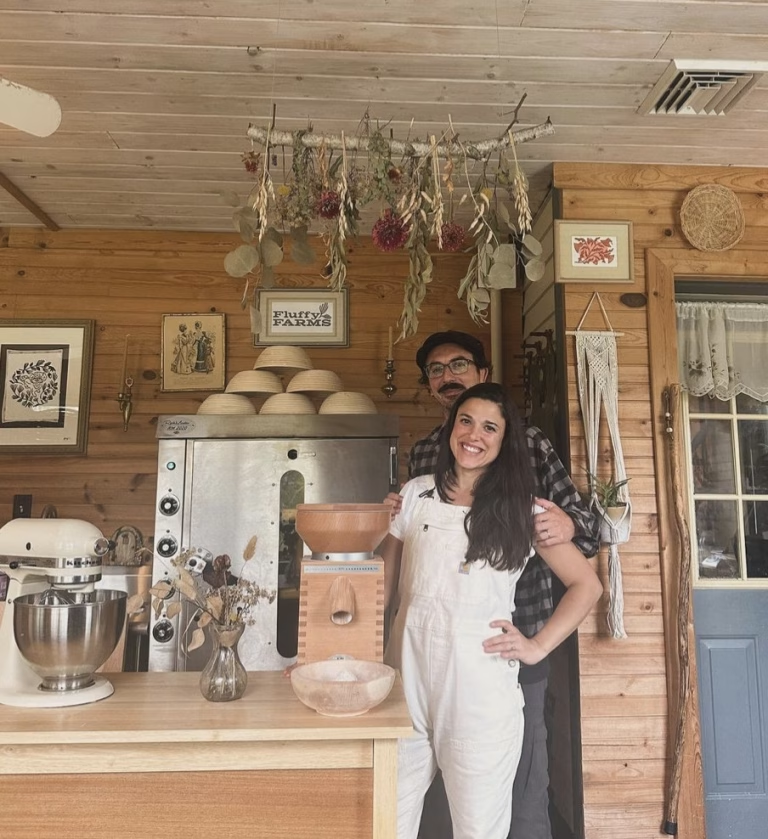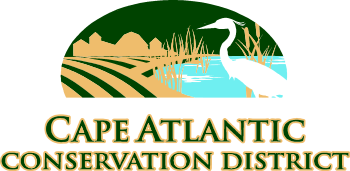In one of the most densely populated states in the country, conservation looks a little different — and that’s exactly what makes the work of the Cape Atlantic Conservation District (CACD) so important. With the help of NACD Outreach and Technical Assistance (TA) Grant funding, CACD is reaching more small-scale, urban, and beginning farmers in Atlantic and Cape May Counties than ever before.
Through this funding, CACD has been able to expand its staff, increase its capacity, and provide one-on-one support for producers navigating the complex world of conservation planning and funding.

Fluffy Farms: A First-Generation Success Story
One shining example of this work is Fluffy Farms, owned by Melanie and Stan Ganzman in Galloway, NJ. As first-generation farmers, the Ganzmans faced a steep learning curve. But with guidance from CACD’s Agriculture Conservation Specialist, Riley Blankenship, they’ve been able to implement conservation practices like high tunnels, wildlife habitat enhancements, and even secure the first silvopasture grant in New Jersey to rotationally graze their goats.
“The process seemed very complicated and overwhelming,” Melanie shared. “Riley explained everything clearly, helped us every step of the way, and now we’re growing crops, building conservation practices, and producing more year-round — all while working with nature, not against it.”
What Are TA Grants and Why Do They Matter?
The NACD TA Grant program, made possible through a partnership with NRCS (Natural Resources Conservation Service), provides local conservation districts with funding to expand their outreach and technical support. In Southern New Jersey, that means CACD can now:
- Serve more new and underserved farmers
- Help producers navigate NRCS conservation programs
- Implement projects like high tunnels, cover crops, wildlife habitat restoration, and silvopasture systems
“The TA grant really became the foundation for us to expand our capacity,” said Joseph Lomax, Vice-Chair of the Cape Atlantic Conservation District. “It helps us be truly responsive to our local producers while building a staff capable of delivering effective conservation programs.”
Personalized Support, Long-Term Impact
Riley and the team at CACD take a relationship-first approach to conservation. Whether it’s a single raised bed or a full pasture management plan, the goal is to build trust with local producers and grow their conservation practices over time.
“We might start with a simple project, but over the years, we want to be there as our farmers grow,” Riley said. “The more we support them, the better we can care for the land together.”
Are You a Farmer or Landowner in Atlantic or Cape May County?
If you’re starting a farm — even on a small property — or interested in conservation funding and planning, reach out to the Cape Atlantic Conservation District. As Melanie says:
“I give Riley’s number to every beginning farmer I know. Contact the District. They might know something you don’t — and it could change everything.”

